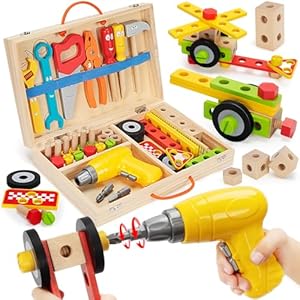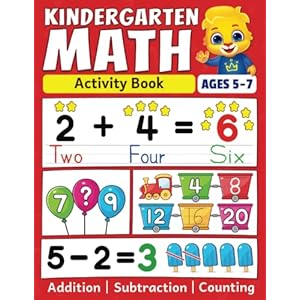
“Cycle-breaking” is a buzzy term within the parenting zeitgeist. Millennial and Gen Z dad and mom usually attempt to be extra emotionally attuned to their little ones — much less “do that as a result of I stated so” and extra “I see you’re having a troublesome time.” However right now’s dad and mom of younger youngsters probably grew up and graduated from highschool or school amid powerful monetary instances, resulting in a rising development of what’s generally known as “cash dysphoria.”
“Individuals with cash dysphoria usually really feel chronically anxious, overwhelmed, and confused about their funds,” explains Dr. Emily Guarnotta, a psychologist and the proprietor of Phoenix Health. “It could additionally embody obsessive ideas about cash and feeling like an individual doesn’t have sufficient of it. This stress usually trickles into different areas of an individual’s life, like their relationships.”
These relationships embody those now we have with our kids, which is why Guarnotta and different psychological well being and monetary specialists stress it’s vital to “break the cycle” of cash dysphoria.
“Funds are a major supply of stress for a lot of new dad and mom, and continual stress is a threat issue for experiencing psychological well being circumstances in the course of the perinatal interval, like postpartum nervousness and despair,” Guarnotta shares. “Youngsters additionally be taught so much about their very own relationships with cash by observing their dad and mom. You would possibly unintentionally undertaking your individual fears onto your baby, which may form how they really feel about cash as they become old.”
We reached out to Guarnotta and different monetary and psychological well being execs for worthwhile insights on cash dysmorphia, together with why it’s occurring, signs, and coping methods, so to cease feeling within the crimson emotionally.
OK, what precisely is cash dysmorphia?
It’s not a scientific psychological well being analysis, however specialists say it’s a real expertise. “Cash dysmorphia is a phenomenon the place a person has a distorted view of their funds, no matter their precise actuality, and might create emotions of monetary insecurity and result in poor monetary selections,” says Courtney Alev, a shopper monetary advocate at Intuit Credit Karma.
As an example, chances are you’ll objectively have sufficient to pay for one thing and attain your monetary targets, however your thoughts might subjectively disagree, explains Dr. Brandy Smith, a licensed psychologist specializing in life transitions and stress with Thriveworks. It could maintain you again from taking the steps you’ll want to higher your individual — and your loved ones’s — monetary and total well-being, like placing apart cash for retirement or your baby’s future schooling, or buying a house in your dream neighborhood.
When you have cash dysmorphia, you’re not alone: Practically 30% of individuals reported having cash dysmorphia, in one study by Qualtrics for Intuit Credit score Karma.
Guarnotta experiences that some widespread signs of cash dysmorphia embody:
- Fixed fear and concern about not having sufficient cash
- Compulsively checking your checking account, bank card statements, or funding portfolios
- Avoiding taking a look at your funds (the other of compulsive checking, each are pushed by concern)
- Excessive patterns of spending, reminiscent of overspending or being extraordinarily frugal
- Continually evaluating your monetary scenario to others
- Emotions of disgrace or embarrassment about your monetary scenario
- Feeling irritable or on edge when cash matters come up
Why does cash dysmorphia occur?
It’s nearly cliché to say it at this level, however social media is a breeding floor for comparability and FOMO. “Cash dysmorphia can stem from a spot of comparability, and is usually amplified by social media,” Alev says. “Sure on-line content material that means a excessive monetary standing can create insecurity when individuals evaluate others’ perceived wealth to their very own.”
Whereas individuals of any age can fall sufferer to comparability and FOMO on social media (and off of it), millennials and Gen-Zers got here of age or grew up on social media. That’s one purpose Alev experiences that 43% of Gen Z and 41% of millennials reported cash dysmorphia within the Intuit Credit score Karma examine. Nonetheless, it doesn’t inform the entire story.
“Millennials and Gen Z have confronted some distinctive monetary challenges that may make them particularly vulnerable to cash dysmorphia,” Alev says. “Many millennials graduated into the Nice Recession, which meant fewer job alternatives and decrease beginning salaries at a crucial level of their careers. Gen Z got here of age in the course of the pandemic, which not solely disrupted schooling and early profession alternatives but additionally heightened social media use, creating a relentless comparability entice.”
And lest we neglect…
“Add in record-high housing prices, scholar mortgage debt, and inflation, and you’ve got generations which have skilled repeated monetary instability whereas being bombarded with curated photos of what success ‘ought to’ appear to be,” Alev notes. “That blend could make it more durable to really feel safe, even when you’re doing properly by goal measures.”
What are some ideas for brand new dad and mom to deal with cash dysmorphia?
Consultants stress the true (exhorborant childcare costs) and perceived (by no means having “sufficient) can worsen cash dysmorphia throughout the brand new guardian stage. But it surely’s not inevitable. They shared golden insights to empower you to handle cash dysmorphia and heal your relationship with funds. That means, you possibly can move on a special type of generational wealth to your toddler — a more healthy relationship with cash.
1. Test in recurrently about funds.
Alev suggests having common month-to-month check-ins.
“Turning into a guardian adjustments your monetary image in a single day,” Alev says. “Setting apart time every month to evaluation bills, alter budgets, and discuss by priorities will help you keep on observe and keep away from resentment or surprises. There’s energy in figuring out the place you stand financially.”
2. Follow mindfulness.
When you’ve established a time and cadence for monetary ins, follow it. This implies avoiding the cash dysmorphia model of “doom scrolling.” Right here, as an alternative of social media, chances are you’ll end up obsessively checking your accounts.
“Resist the urge to verify outdoors of this devoted time,” she says. “For those who really feel nervousness or concern, take a deep breath and keep in mind that that is worthwhile data. Attempt to give attention to options, not previous errors.”
3. Create a practical child price range earlier than the child arrives.
Whereas costs of products can rise and fall, attempt your greatest to get a gauge on them earlier than your child arrives. “Understanding what’s coming will help you prioritize purchases and keep away from last-minute splurges that may pressure your funds,” Alev explains.
Alev suggests mapping out one-time bills, like a crib or stroller. Ongoing bills, reminiscent of diapers, components (if relevant), and childcare prices (if relevant), also needs to be included within the price range.
4. Shift your mindset about price range.
Are you shuddering as a result of we used the B phrase above? If that’s the case, Guarnotta will get it.
“Some individuals have a visceral response to the phrase ‘price range,” however the actuality is {that a} price range is about setting tips that assist you to align your spending with what really issues to you and your loved ones,” she says. “As an alternative of viewing it as limiting, consider it as a plan that lets you stay the life that you really want.”
Throughout a peaceful pre-baby monetary check-in (and ones that come after), you would possibly talk about values on cash and the longer term. “For instance, is it vital that you just take a trip yearly or contribute to your baby’s school fund? Then, let these values information your monetary planning,” Guarnotta suggests.
5. Normalize not shopping for the “newest” and “best.”
New will not be all the time obligatory. “As a brand new/expectant guardian, it’s price contemplating methods to make it normative that the newest model of the whole lot will not be completely obligatory,” Smith says.
As an example, you would possibly just do nice with second-hand child garments — infants develop shortly (and will we talk about spit-up and diaper explosions?).
“Plus, it’s price remembering for your self and modeling it to your baby that typically the newest isn’t truly the best,” Smith suggests. “It’s only a tag line that’s meant to make individuals assume they ‘have’ to get essentially the most up to date model as quickly as potential. Typically it’s advisable to offer the brand new model time for the kinks to be labored out after which get it later.”
6. Get inventive with childcare (if potential).
This one goes to rely in your entry to paid go away at work (which the US, not like different developed international locations, maddeningly does not guarantee). A Care.com 2025 report discovered that oldsters spent a mean of 22% of their household income on childcare.
If relevant, Mary Clements Evans, the writer of Emotionally Invested and a monetary advisor with RJFS at Evans Wealth Methods, suggests contemplating whether or not you and your associate can take parental go away at completely different instances (sure, males are included!).
“Saving these months of kid care is an enormous deal,” Clements stated. “Plus, the child and Dad will get time collectively.”
Clements can be seeing extra grandparents pitch in with childcare in the course of the week, and a few dad and mom are splitting shifts, reminiscent of one particular person working days and one other working nights. It is probably not excellent (or truthful), but it surely is perhaps price it if it helps you cut back long-term monetary stress.
7. Plan forward.
College savings is a large goal — one that individuals with cash dysmorphia could also be afraid to consider, stopping them from going after short-term monetary wants. It doesn’t assist that right now’s new dad and mom should be paying off their very own loans. Nonetheless, Alev stresses that small, constant contributions add up.
“Automating the method helps you construct towards long-term targets with out having to consider it every month,” Alev says. “It’s a strong reminder that you just’re prioritizing your baby’s future and reinforces your position as a accountable, proactive guardian.”
It’s also possible to re-imagine vacation want lists, particularly with relations. Clements suggests asking for 529 account contributions as an alternative.
8. Curate your social media feed.
Minimizing FOMO can reduce cash dysmorphia flare-ups. “Taking management of your social media use is one approach to handle how you are feeling about cash,” Dr. Guarnotta says. “Undergo your social media account and unfollow or mute any accounts that don’t make you are feeling good. This may very well be influencers and even friends who make you are feeling ‘lower than.’” (That is simply good life recommendation, on the whole.)
Guarnotta suggests looking for out accounts that supply worthwhile ideas for investing and budgeting to reinforce your monetary literacy.
9. Give attention to frugal household enjoyable.
Pay attention, we’d like cash. We pay to stay on this earth, in any case. However you don’t essentially want a boatload of money to make core reminiscences with your loved ones.
“Create an setting the place enjoyable could be had with out spending cash — or as a lot cash,” Smith says. “Typically, individuals have the view that they will ‘solely’ have a great time if they’re out and about spending cash.”
Exploring local libraries (which frequently have free or reduced-cost museum tickets), heading to an area park, and household picnics in the lounge are all methods to have extra enjoyable (for much less cash). And Smith factors out that, in choosing these sorts of experiences, you’ll move on the concept to your youngsters that one thing doesn’t should be costly to be enjoyable.
10. Discover help.
Cycle-breaking is difficult, whether or not you’re attempting to yell at your youngsters much less or heal monetary wounds. Want-to-know data: You don’t should go it alone.
“Disgrace thrives at the hours of darkness,” Guarnotta says. “Voicing your emotions to somebody you belief, like your associate, a member of the family, or a pal, will help you are feeling much less alone and in addition present one other perspective. They may additionally have the opportunity that will help you discover your choices and establish reasonable options.”
In case your cash dysphoria is inflicting you to really feel anxious or depressed, or is negatively impacting your relationships, Guarnotta suggests that you just would possibly profit from talking with knowledgeable.
“An excellent therapist will help you not solely get to the foundation of your monetary nervousness, but additionally shift your perspective and develop wholesome coping strategies,” Dr. Guarnotta says. “Your therapist’s job is that will help you higher deal with monetary calls for and develop a more healthy relationship with cash, to not let you know what to do along with your cash or learn how to spend it.”
And you may then pay it ahead along with your child(s).
Trending Merchandise











